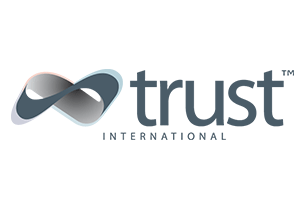Egencia™, an Expedia, Inc. company, today unveiled its 2009 Global Benchmarking Study, evaluating the current economic climate and its impact on travel management trends and the supply environment for business travel. Focusing on top domestic and international business markets in North America, Europe and Asia-Pacific, Egencia analyzed industry trends, supplier research and capacity implications for the rest of the year. The study builds on themes first addressed in Egencia’s 2009 Forecast and Negotiability Index released last November.
“The impact of an uncertain economy is evident in the corporate travel industry,” said Rob Greyber, president of Egencia. “As companies tighten control over travel spend, the resulting decrease in demand has resulted in significant YOY declines in average daily rates (ADR) and average ticket prices (ATP) for most business markets in the first quarter of 2009.”
Despite recent capacity cuts and weaker foreign currencies increasing the cost effectiveness of international travel, the combination of declining volumes, macroeconomic conditions and increased competition on numerous business routes has contributed to downward pressure on air pricing in top business travel destinations for North America. Front of cabin seating has been particularly affected as companies alter class of service policy. The lodging industry experienced similar influence with recent cut-backs in corporate meetings and overall decreased demand. However, fueled by the past optimism, hotel supply is still growing which only increases the downward pressure on ADRs.
Charts below illustrate Q1year-over-year ATP and ADR figures in US $ dollars in selected business travel destinations for North America.
Looking Ahead
Based on airline forecasted capacity increases in Q3 and the drop in oil prices, Egencia expects the biggest decline year-over-year to occur in Q3 2009 when corporate travel ATPs will reach their lowest levels.
“While capacity is still down year-over-year, we’ve seen some recent movement from the airlines to add capacity back in the summer months,” said Greyber. “This could provide the buffer we need for a further drop in corporate travel ATP in the third quarter. Travel buyers should leverage this data for planning travel spend and preferred supplier strategy now and leading into next year.”
Egencia also surveyed more than 100 travel buyers on actions companies are taking to control travel spend and how expectations have changed in the last several months. According to survey respondents, 64 percent of travel managers have slightly or significantly reduced their amount of business travel, up from 48 percent in November 2008. Surprisingly, 13 percent of respondents said they have slightly increased business travel, versus three percent six months ago.
The top practices travel managers are using to save on travel costs include:
- Advanced booking of airline tickets (58%, up from 55% in fall 2008)
- Active tracking of unused tickets (57%, up from 44%)
- Enforcing travel policy more rigorously (53%, up from 43%)
There has also been a notable increase in renegotiation of supply contracts (19% up from 11%) and in mandating the use of a corporate travel provider (19% up from 9%) to better manage travel expenditures.
“We’ve seen corporate travel buyers trending toward more active spend management,” said Pam Keenan Fritz, senior vice president of Egencia North America. “Our clients are controlling spend through the greater use of advanced booking, unused ticket tracking and more rigorous policy enforcement.”
Europe
Like in North America, Europe has pulled airline capacity, most recently with long haul flights from U.S. carriers. Consolidation/alliance coordination is a factor driving corporate travel pricing upwards. However, declining demand for premium travel, passenger load factors and a sustained decline in oil prices have contributed downward pressure on European air pricing in top business travel destinations; increased competition from low-cost carriers has also affected the European market. Similarly, decreased demand, corporate cut-backs on meetings and lower air capacity has contributed downward pressure on lodging pricing for business travelers.
The chart below illustrates Q1 year-over-year ATP and ADR figures, adjusted for the FX rate of exchange, in top business destinations for Europe.
Research Methodology
Forecast and projections are based on the statistical analysis of the past and present industry trends, macroeconomic factors, market research and vendors’ capacity forecasts for 2009. Smith Travel Research (STR) and OAG filings were leveraged for a market-level analysis of both Lodging and Air capacity. ARC, BSP, STR and Expedia Internal Data were used for market-level analysis of pricing.
As indicated above, the projections are based on information gathered from various internal and external sources. The forecast represents an opinion based on current market factors and is not a representation or warranty as to the accuracy of the forecasts or projections made herein. Actual changes in ticket prices and hotel rates could vary significantly from forecasted numbers, impacted by unforeseen future economic and political factors.




